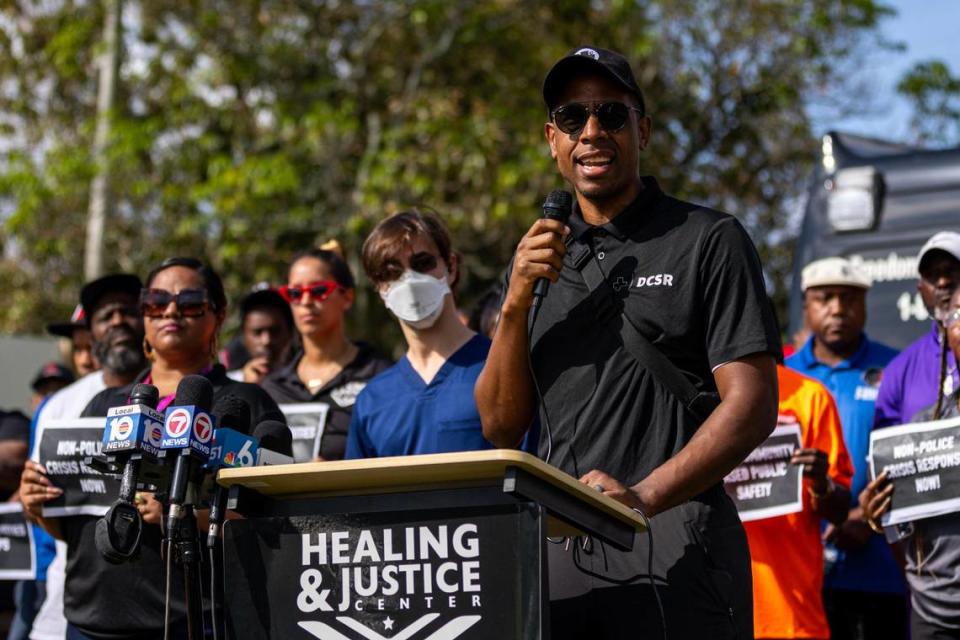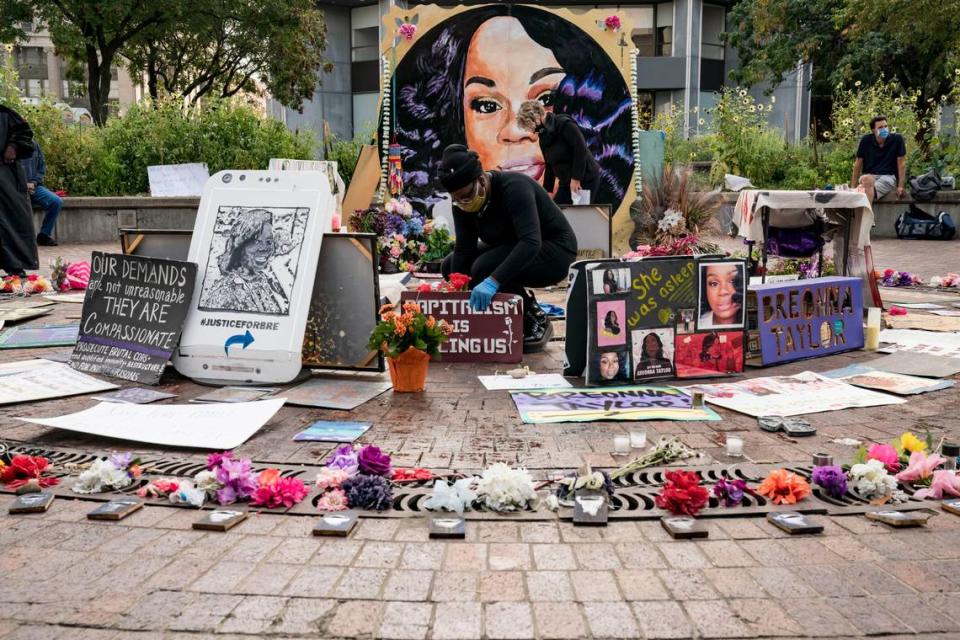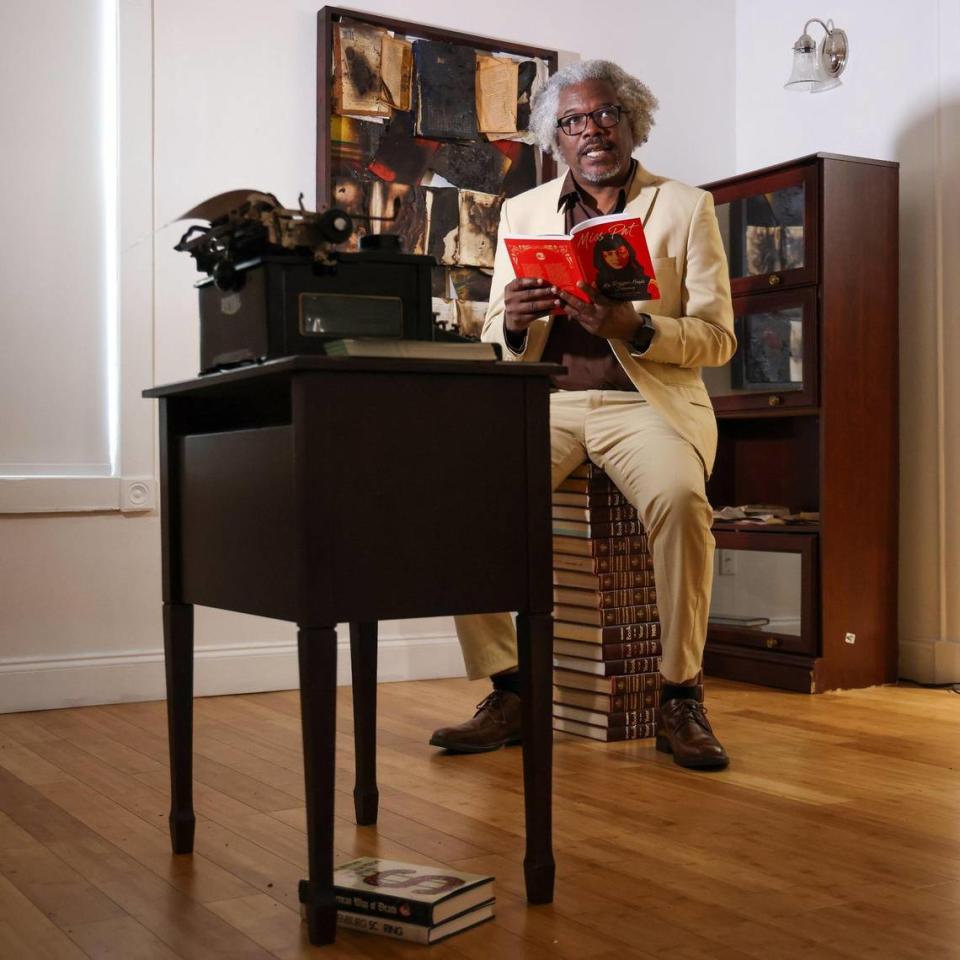The 44 Percent: Overtown exhibit, gentrification in Little Haiti, and Breonna Taylor
- Oops!Something went wrong.Please try again later.
- Oops!Something went wrong.Please try again later.
Wednesday marked four years since Breonna Taylor was shot and killed by police in Louisville, Kentucky during a botched raid at her apartment complex, and in that time, her family is still fighting for justice.
That could come as the Justice Department prepares a third trial for Brett Hankison, who is facing federal civil rights violations, the Washington Post reported earlier this week.
Taylor’s death came three weeks after Ahmaud Arbery was killed by two white men while running in a Brunswick, Georgia neighborhood and two months before George Floyd was killed after a white former Minneapolis police officer kneeled on his neck for more than 9 minutes. Both Arbery and Floyd’s killings resulted in convictions.
The only conviction in the case Taylor’s family has seen is that of Kelly Goodlett, a former detective who pleaded guilty to federal charges of falsifying the search warrant that allowed officers to enter Taylor’s home, the Post reported. Two others are awaiting trial and Goodlett hasn’t been sentenced.
While Taylor’s family won a $12 million settlement in the a wrongful death lawsuit filed against the city of Louisville, it should not be considered the sole form justice for a woman wrongly killed in her home. Justice shouldn’t stop there for a woman who is enshrined in the slogan, “Say Her Name” at the height of racial justice protests in 2020.
INSIDE THE 305:

Miami-made film about gentrification in Little Haiti is making a splash at festivals
Filmmaker Monica Sorelle’s latest project, “Mountains,” focuses on gentrification in Miami’s Little Haiti neighborhood. Co-written with Robert Colom, the film was birthed after they saw homes being demolished daily in the Wynwood neighborhood. The film has been awarded in major film festivals and Sorelle was recognized at the Film Independent Spirit Awards, winning the Someone To Watch Award along with a $25,000 grant.

Miami activists denounce police for shooting Black man having mental health crisis
The multiple organizations that make up the Healing and Justice Center came together Thursday morning to denounce a Miami police shooting that left a Black man in critical condition.
Miami police shot Donald Armstrong multiple times last Thursday in Liberty City after his mother called 911 to help her son who was in the midst of a mental health crisis. Members of the Healing and Justice Center (HJC), a collective made up of the Circle of Brotherhood, Dade County Street Response, Dream Defenders and Touching Miami with Love, contended that Armstrong not only shouldn’t have been shot but that their Freedom House Mobile Crisis Unit would’ve better handled the situation.
OUTSIDE THE 305:

Former Louisville officer faces third trial in Breonna Taylor slaying
Two years after Louisville police fatally shot Breonna Taylor, her mother made a surprise visit to Justice Department headquarters in Washington to implore federal authorities to hold one or more officers criminally liable for the killing. Former officer Brett Hankison had been acquitted of state charges of reckless behavior related to Taylor’s death. With a petition signed by 18,000 people, Tamika Palmer that day in 2022 asked senior Justice officials whether there was anything more they could do.
HIGH CULTURE:

‘Keep the kids reading.’ New Overtown exhibition combines Black history, banned books
Imagine America’s response after David Walker published “An Appeal to the Coloured Citizens of the World” in 1829. A Black man, writing a book, trying to unite a race of enslaved people. An uproar ensued and the book became considered contraband, even more so due to the mention of the Haitian Revolution of 1804. Walker’s “Appeal” helped inspire “On the Ban Wagon: The Power of the Pen,” an art installation currently on display at the D.A. Dorsey House in Overtown through Dec. 20, 2024.
Where does “The 44 Percent” name come from? Click here to find out how Miami history influenced the newsletter’s title.

